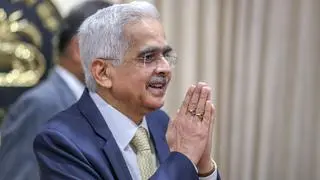The government has bet on reducing consumption and increasing production in a bid to reduce the import dependence on oil and gas. This was reasserted at the first meeting of the Integrated Monitoring and Advisory Council (IMAC) on the roadmap to achieve the target of 10 per cent reduction in import dependency in oil and gas by 2021-22.
The IMAC consists of the Secretary, Petroleum & Natural Gas and other senior officers from the Ministry of New and Renewable Energy. The IMAC also has officers from the Ministry of Urban Development, Roads and Transport, Agriculture, Rural Development and Finance. The Bureau of Energy Efficiency, Petroleum Planning Analysis Cell, Petroleum Conservation Research Association, and the Directorate-General of Hydrocarbons are also represented on the IMAC.
The meeting was chaired by Minister of State (Independent Charge) for Petroleum and Natural Gas, Dharmendra Pradhan. He highlighted measures such as promoting conservation and energy efficiency, exploring opportunities for oil demand substitution and tapping the potential of bio-fuels (2G bio-ethanol, feedstock for bio-diesel, channelising other feedstock for bio-diesel).
Pradhan also said energy consuming ministries and ministries involved in technology need to be brought under the ambit of IMAC.
At the meeting, the Ministry of Road, Transport and Highways highlighted measures such as e-tolling, notification of fuel efficiency norms for LCV, and bio-diesel for lowering import dependence.
The Ministry of Rural Development stressed upon their bio-fuel scheme in the rural sector. The Bureau of Energy Efficiency (BEE) pointed out energy efficiency measures in the industrial and transport sectors. MNRE elaborated on energy generation through renewable sources such as solar and wind power and their future strategy in this regard.






Comments
Comments have to be in English, and in full sentences. They cannot be abusive or personal. Please abide by our community guidelines for posting your comments.
We have migrated to a new commenting platform. If you are already a registered user of TheHindu Businessline and logged in, you may continue to engage with our articles. If you do not have an account please register and login to post comments. Users can access their older comments by logging into their accounts on Vuukle.